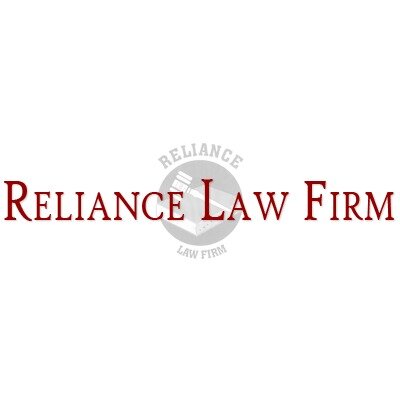Best Renewable & Alternative Energy Lawyers in Nepal
Share your needs with us, get contacted by law firms.
Free. Takes 2 min.
Or refine your search by selecting a city:
List of the best lawyers in Nepal
About Renewable & Alternative Energy Law in Nepal
Nepal is renowned for its abundant natural resources, particularly its rivers that provide significant potential for hydropower generation. In recent years, the country has placed increased emphasis on developing and utilizing renewable and alternative energy sources, not only to meet growing energy demands but also to promote sustainable development and mitigate environmental challenges. The legal framework surrounding renewable and alternative energy in Nepal involves a blend of regulatory policies, investment provisions, and environmental standards. This framework is designed to encourage both domestic and foreign investment in clean energy projects such as hydropower, solar, wind, and biomass, while ensuring responsible and sustainable growth in the sector.
Why You May Need a Lawyer
Engaging with renewable and alternative energy projects in Nepal can be complex and often requires expert legal assistance. Here are some common scenarios where individuals, businesses, or organizations may need a lawyer with expertise in this field:
- Navigating the regulatory approvals and licensing process for energy projects
- Negotiating land acquisition and securing land use rights
- Drafting, reviewing, or enforcing contracts with government entities, investors, or contractors
- Understand compliance with environmental and safety regulations
- Handling disputes related to project implementation, environmental damage, or intellectual property
- Securing incentives, subsidies, or tax benefits offered for renewable energy investments
- Guiding foreign investors through local partnership requirements and repatriation of profits
A knowledgeable lawyer can help streamline these processes, ensure compliance, protect your interests, and reduce the likelihood of costly legal challenges.
Local Laws Overview
Nepal’s legal landscape for renewable and alternative energy centers around several key laws, policies, and institutional bodies. Some of the most relevant aspects include:
- Electricity Act 1992 and its amendments, which regulate the generation, transmission, and distribution of electricity, including renewables
- Alternative Energy Promotion Centre (AEPC), a governmental body overseeing subsidies, project approvals, and the promotion of alternative energy technologies
- Renewable Energy Subsidy Policy, which provides financial incentives for investment in non-conventional energy sources
- Environment Protection Act 2019, outlining requirements for Environmental Impact Assessments (EIA) and Initial Environmental Examinations (IEE) for energy projects
- Public-Private Partnership (PPP) and Investment Act 2019, facilitating large scale and cross-border investments into the energy sector
- Land Acquisition Law, which addresses procedures for acquiring and compensating for land used in energy projects
- Foreign Investment and Technology Transfer Act, enabling foreign investment in renewable energy under certain conditions
Understanding and navigating these laws is crucial for the successful development, financing, and operation of renewable and alternative energy initiatives in Nepal.
Frequently Asked Questions
What renewable and alternative energy sources are most common in Nepal?
Hydropower, solar, wind, and biomass are the most widely developed types of renewable and alternative energy in Nepal.
Do I need a license to start a renewable energy project?
Yes. All energy projects in Nepal, including those based on renewables, require licenses or permits from the Department of Electricity Development and, in some cases, the AEPC.
Are there government incentives for renewable energy investment?
The government offers subsidies, tax incentives, and grants for qualifying projects, especially those serving rural or off-grid communities.
What are the key compliance requirements for renewable energy projects?
Compliance typically involves obtaining appropriate licenses, completing environmental assessments, following land use regulations, and adhering to safety and technical standards.
Can foreign companies invest in Nepal’s renewable energy sector?
Yes, foreign investment is encouraged with various forms of assistance and protections, but is subject to certain regulatory requirements and approvals under Nepali law.
What is an EIA or IEE and when is it required?
An Environmental Impact Assessment (EIA) or Initial Environmental Examination (IEE) is a mandatory study to evaluate and mitigate environmental risks before starting a large-scale energy project.
How long does it take to get approvals for an energy project?
Approval times vary depending on the type, size, and location of the project, as well as the completeness of submitted documentation. Delays can occur without thorough legal and regulatory guidance.
Can individuals install solar panels or other renewables at their homes?
Yes. Homeowners can install systems like solar panels for their own use, and smaller installations typically face fewer regulatory hurdles.
What happens if there are land disputes during project development?
Disputes over land acquisition or usage can halt projects. Legal intervention, mediation, or court proceedings may be necessary to resolve such disputes.
Who regulates safety and quality standards for renewable energy projects?
The Department of Electricity Development, the AEPC, and other governmental agencies set and enforce technical and safety standards in Nepal.
Additional Resources
If you are seeking more information or support regarding renewable and alternative energy legal matters in Nepal, consider these organizations and resources:
- Alternative Energy Promotion Centre (AEPC)
- Department of Electricity Development (DoED)
- Nepal Electricity Authority (NEA)
- Ministry of Energy, Water Resources and Irrigation
- Nepal Law Commission
- Renewable Energy Confederation of Nepal
- Legal aid organizations and bar associations in Nepal specializing in energy and environmental law
Next Steps
If you need legal help in the field of renewable and alternative energy in Nepal, follow these steps:
- Clearly identify your needs and challenges, such as regulatory approval, land acquisition, investment structure, or dispute resolution.
- Gather all relevant documentation related to your project or issue, such as land records, contracts, permits, or government correspondence.
- Contact a legal professional or law firm in Nepal with experience in energy and environmental law. Ask about their background with similar projects and request a consultation.
- Engage your lawyer early in the process to avoid pitfalls and ensure compliance with all legal and regulatory requirements.
- Stay informed on changes to relevant laws and policies that may affect your project.
By seeking qualified legal assistance in a timely manner, you can save time, minimize risks, and maximize the success of your renewable and alternative energy venture in Nepal.
Lawzana helps you find the best lawyers and law firms in Nepal through a curated and pre-screened list of qualified legal professionals. Our platform offers rankings and detailed profiles of attorneys and law firms, allowing you to compare based on practice areas, including Renewable & Alternative Energy, experience, and client feedback.
Each profile includes a description of the firm's areas of practice, client reviews, team members and partners, year of establishment, spoken languages, office locations, contact information, social media presence, and any published articles or resources. Most firms on our platform speak English and are experienced in both local and international legal matters.
Get a quote from top-rated law firms in Nepal — quickly, securely, and without unnecessary hassle.
Disclaimer:
The information provided on this page is for general informational purposes only and does not constitute legal advice. While we strive to ensure the accuracy and relevance of the content, legal information may change over time, and interpretations of the law can vary. You should always consult with a qualified legal professional for advice specific to your situation.
We disclaim all liability for actions taken or not taken based on the content of this page. If you believe any information is incorrect or outdated, please contact us, and we will review and update it where appropriate.
Browse renewable & alternative energy law firms by city in Nepal
Refine your search by selecting a city.

















